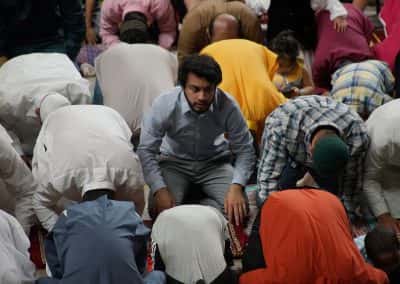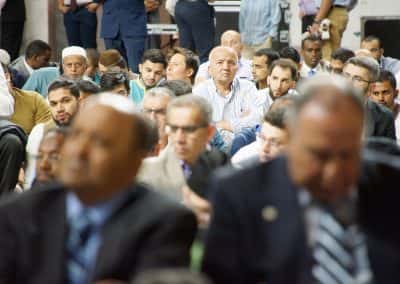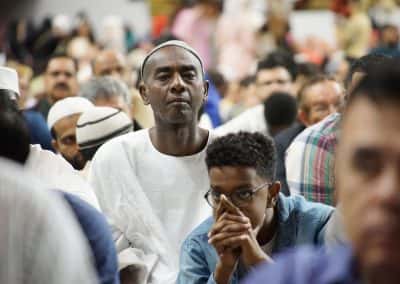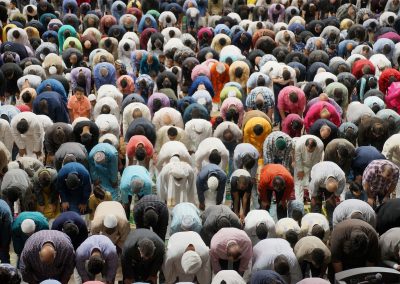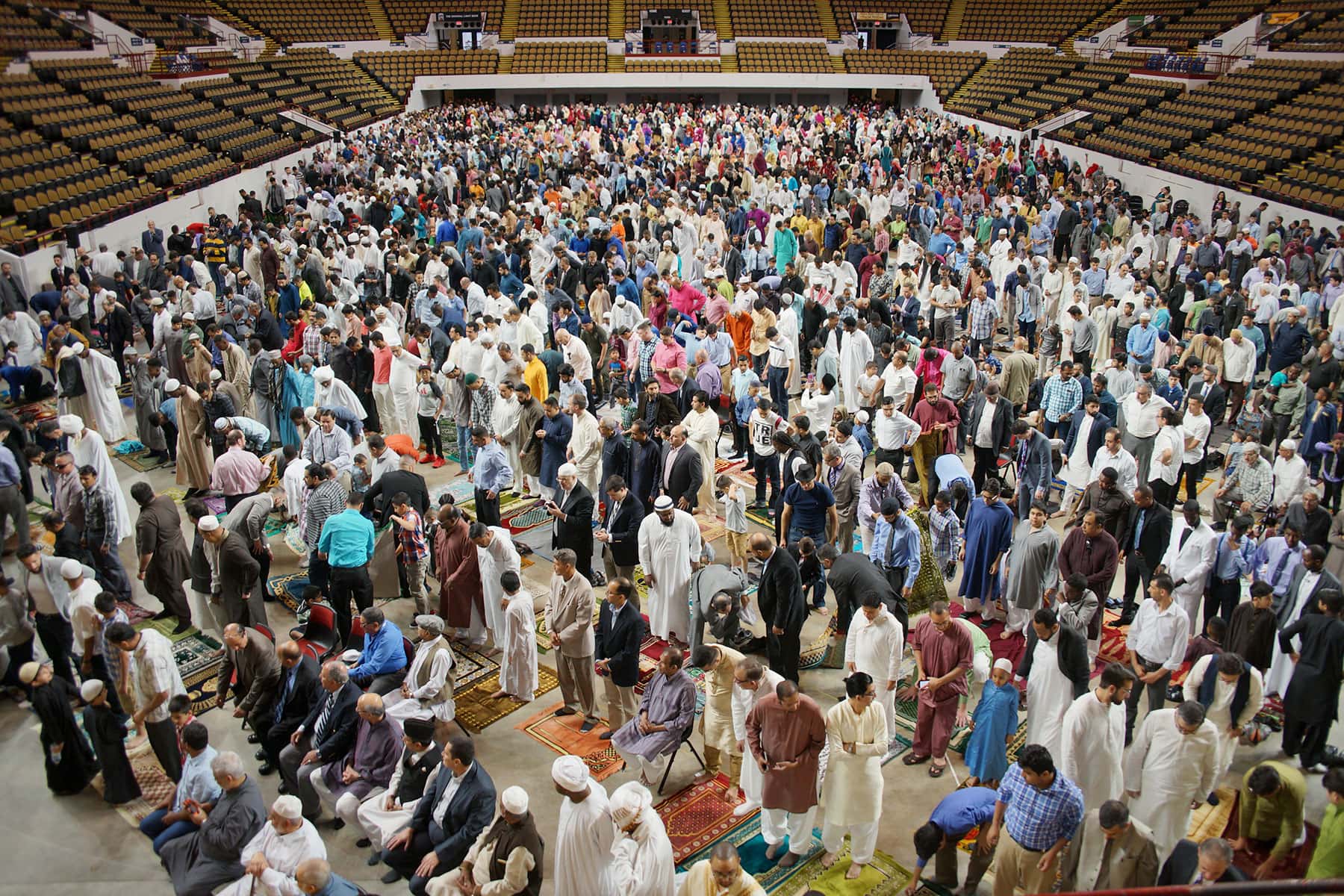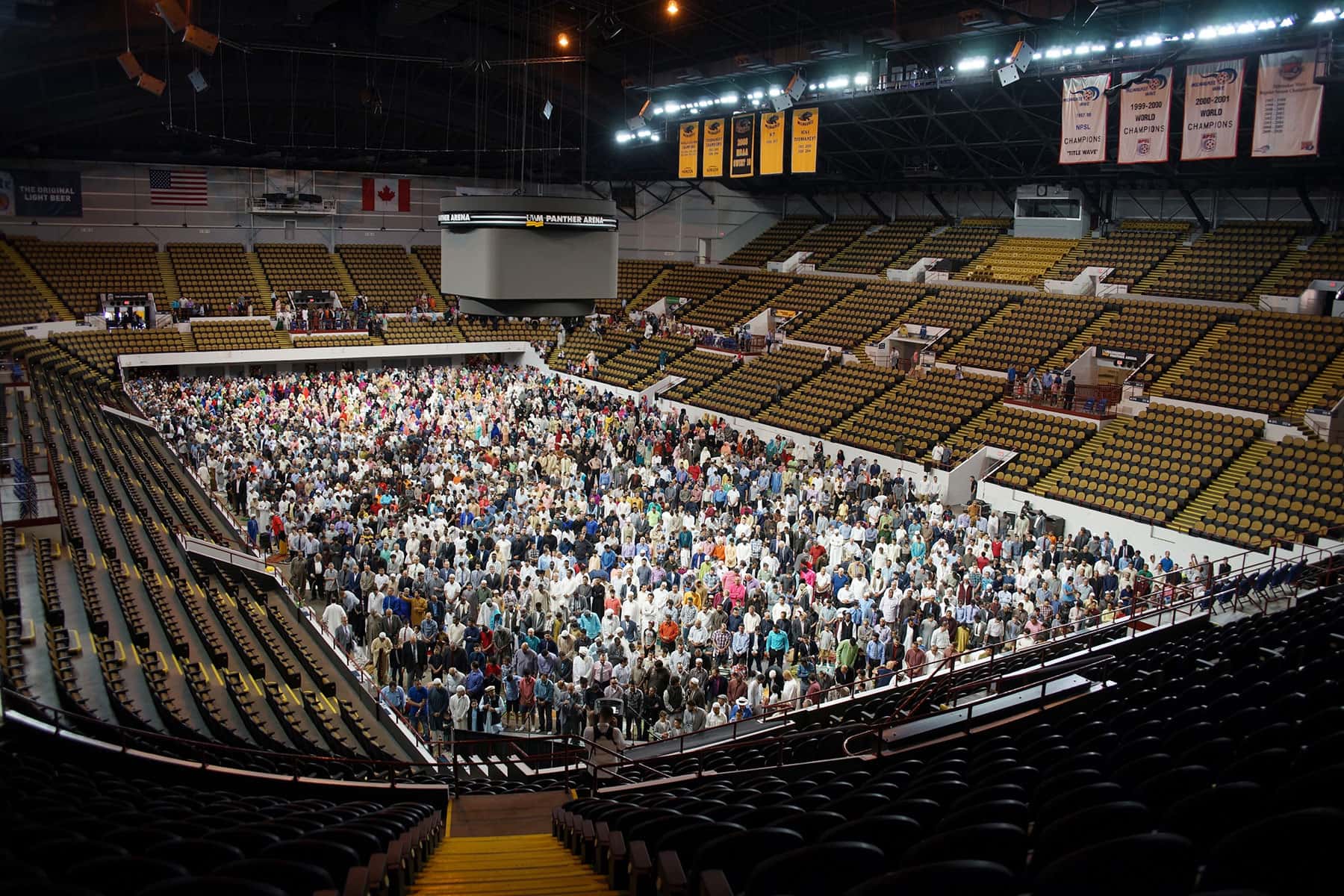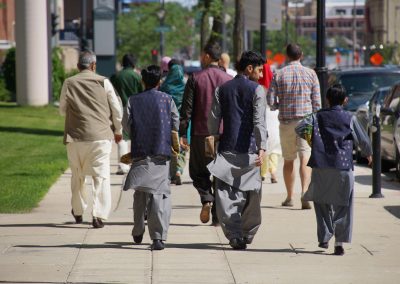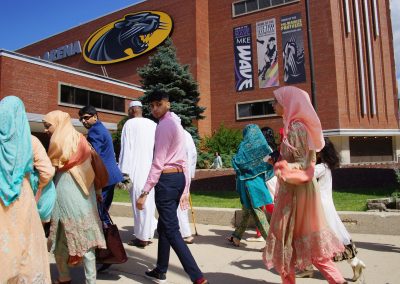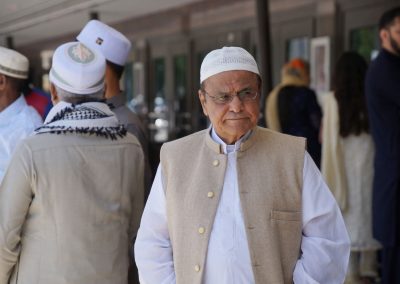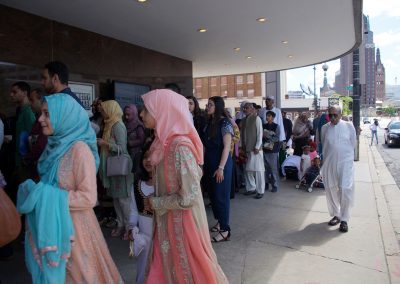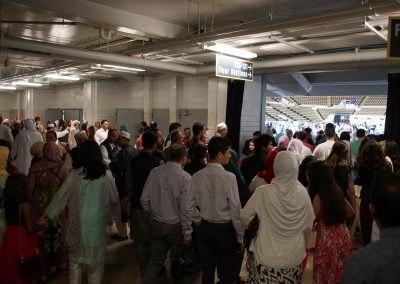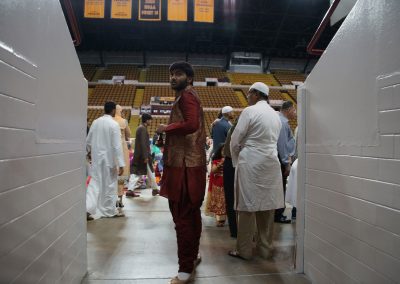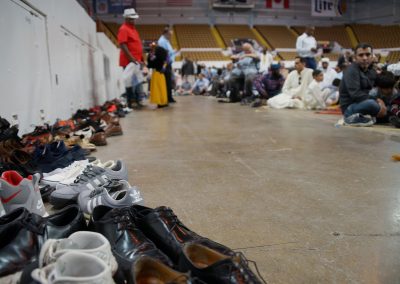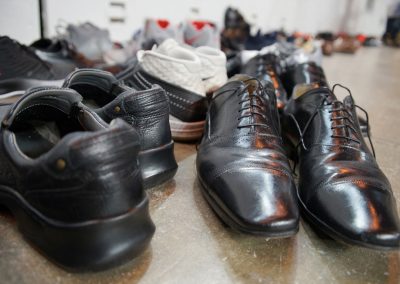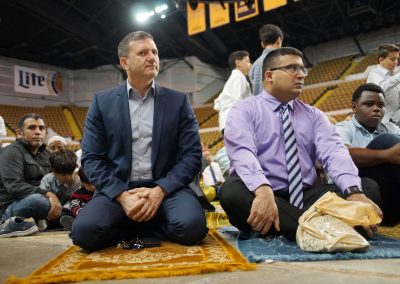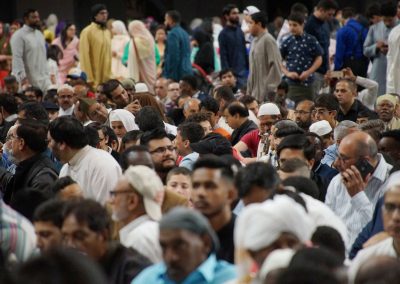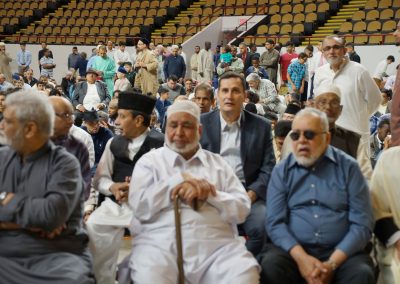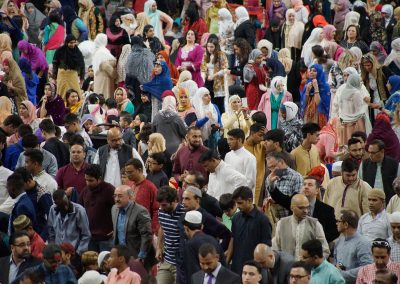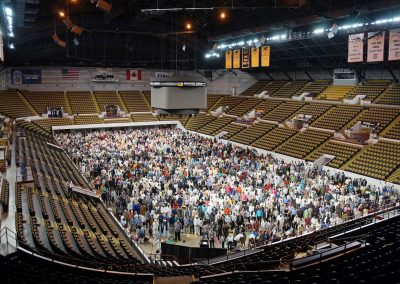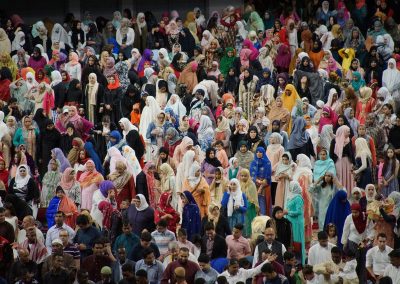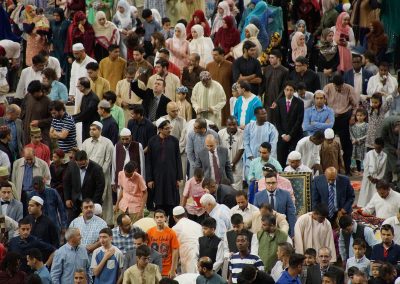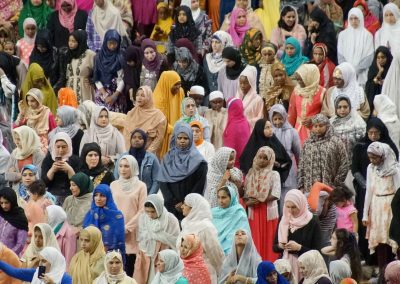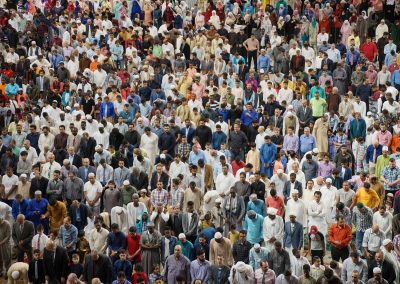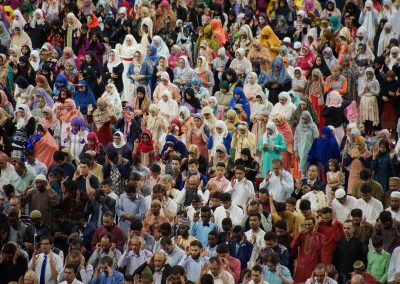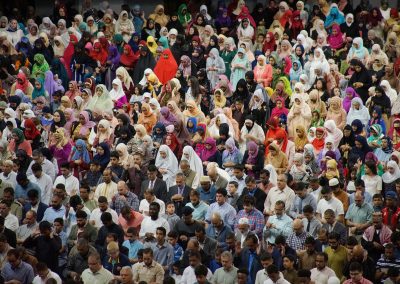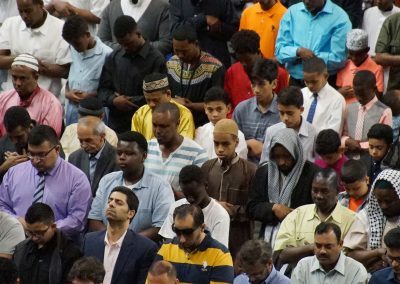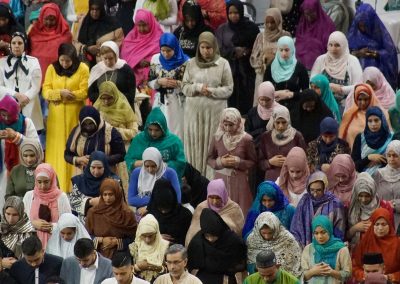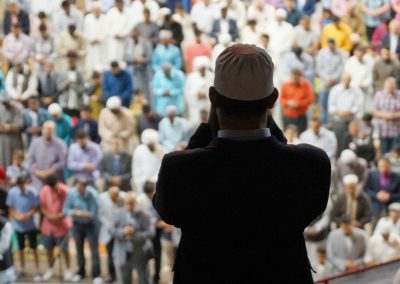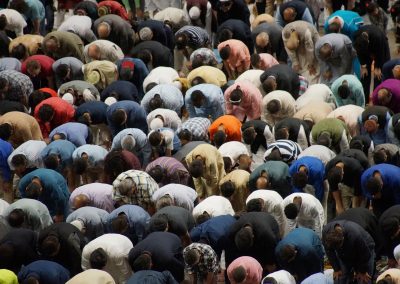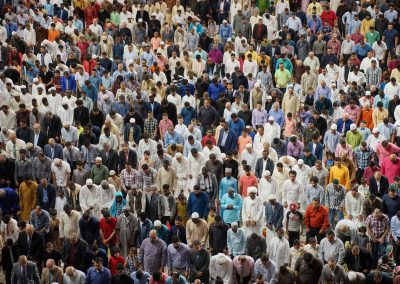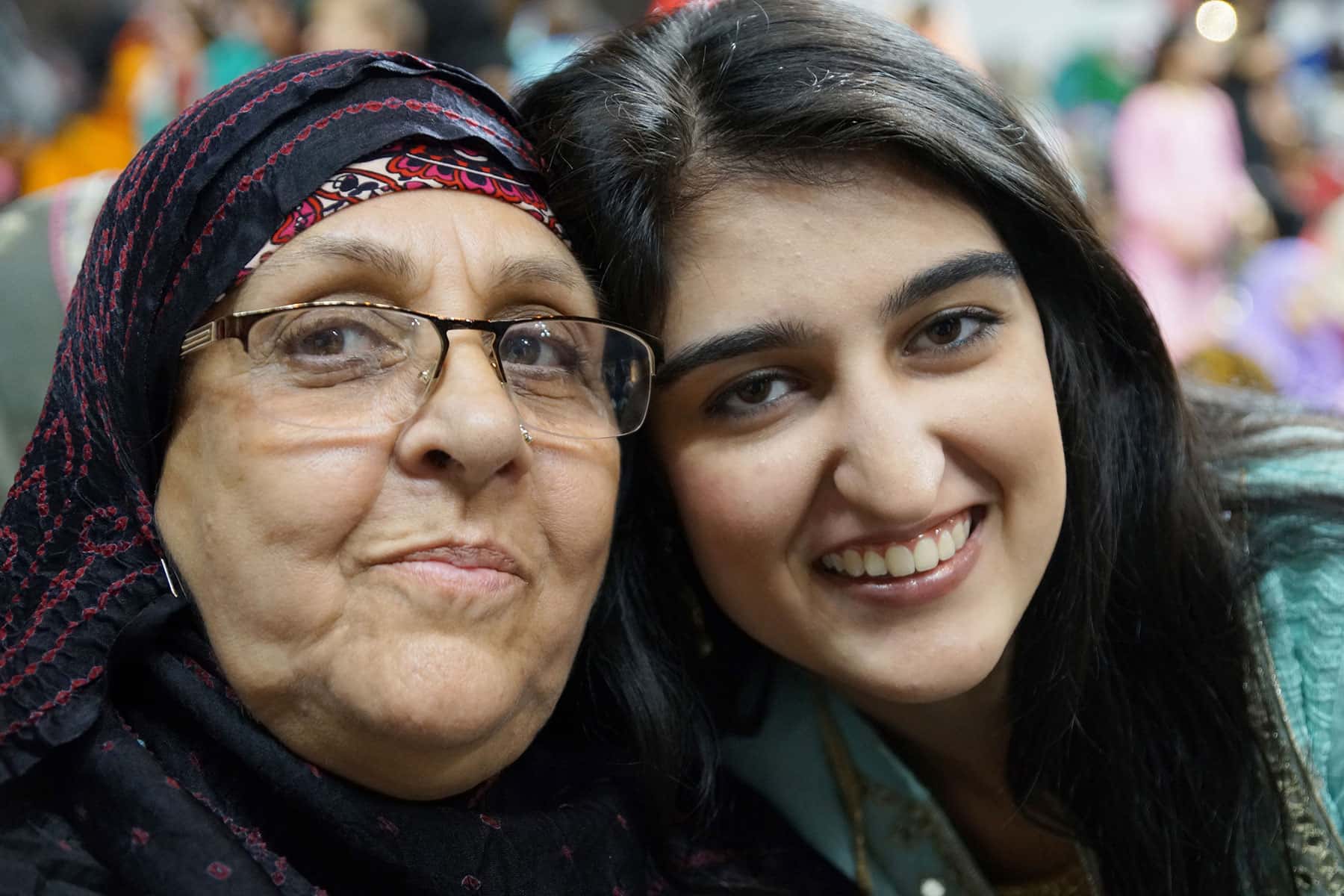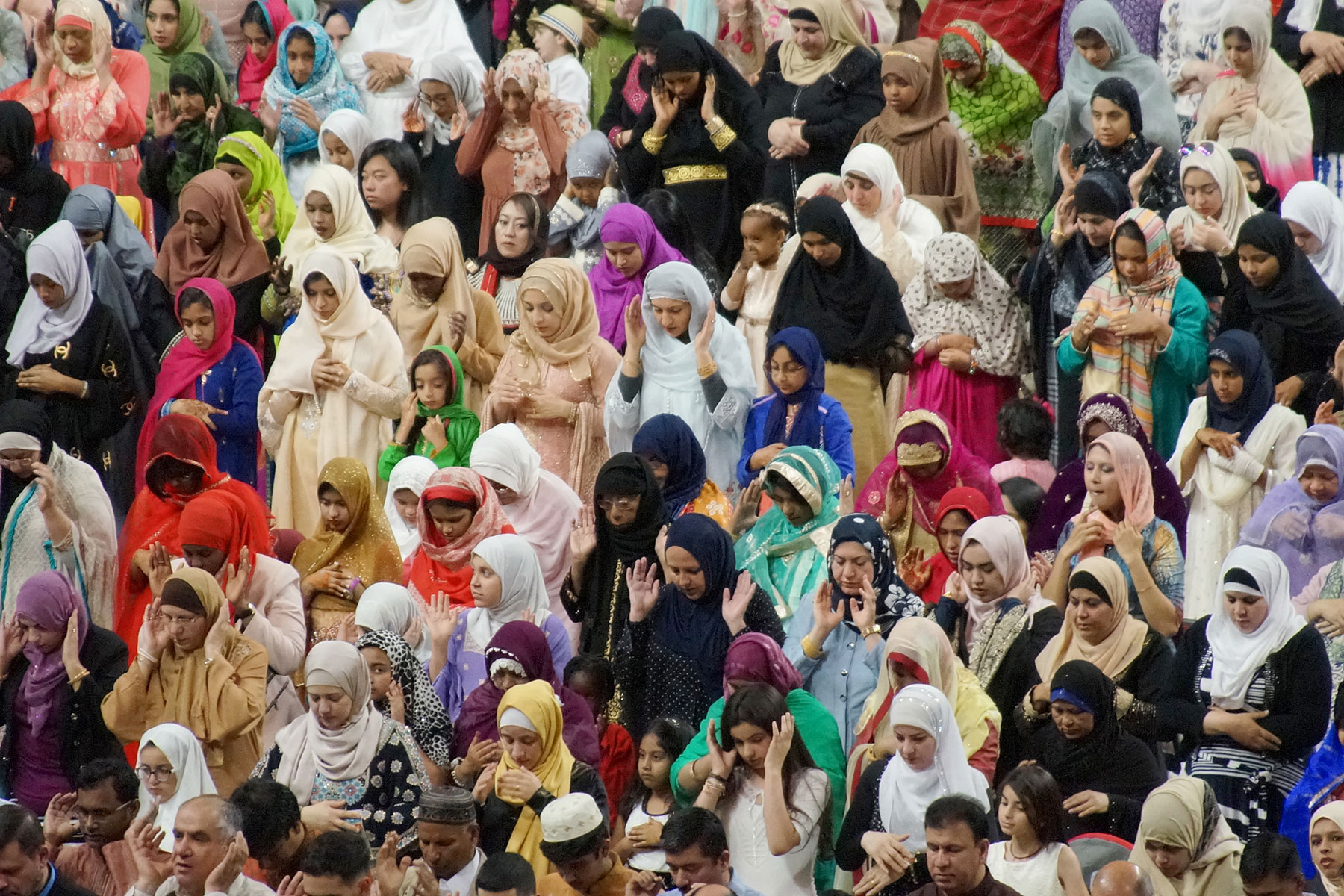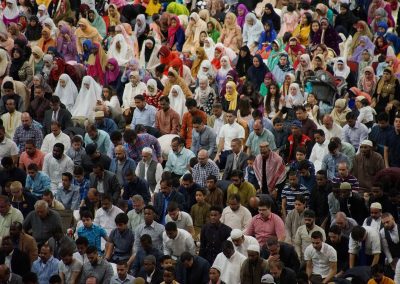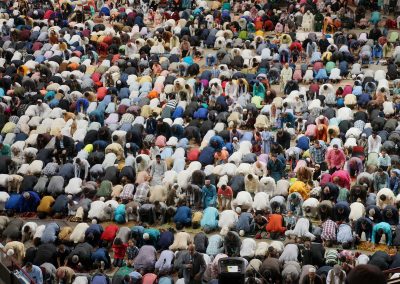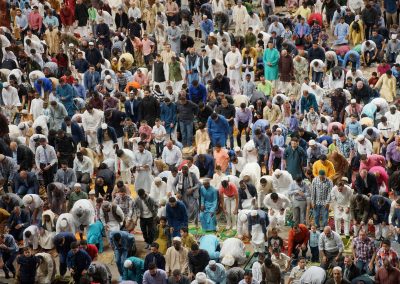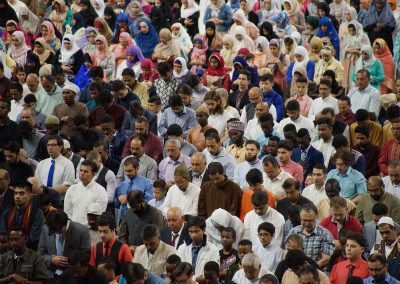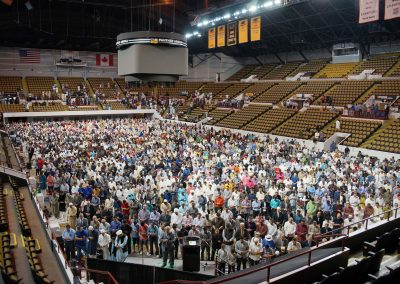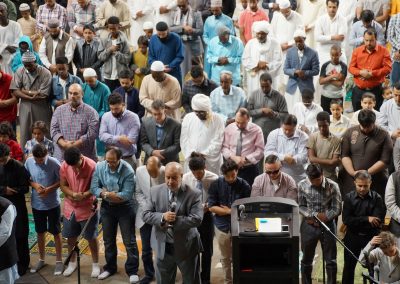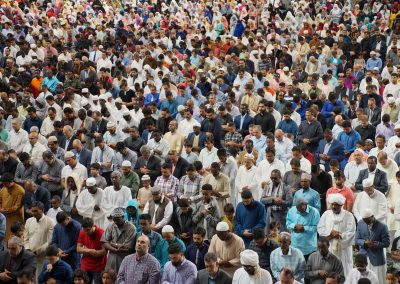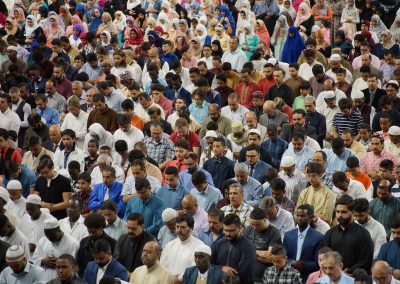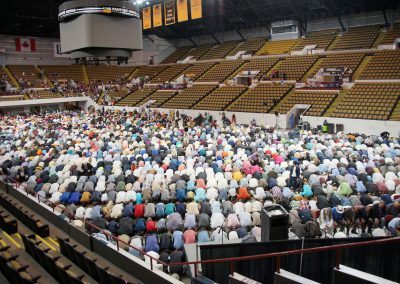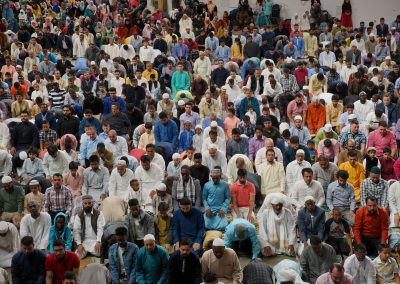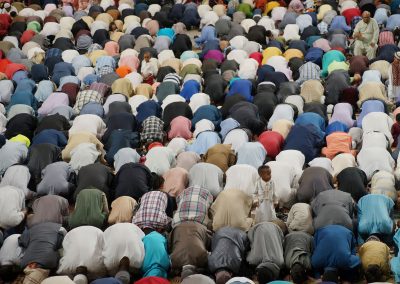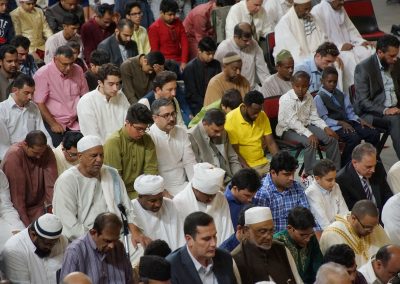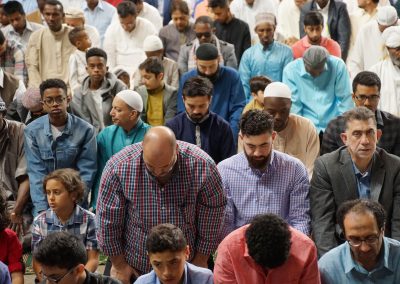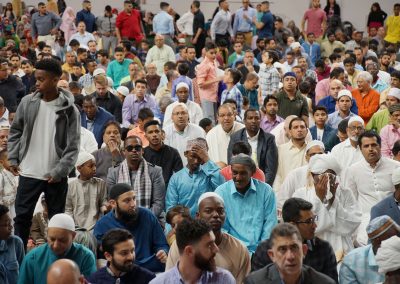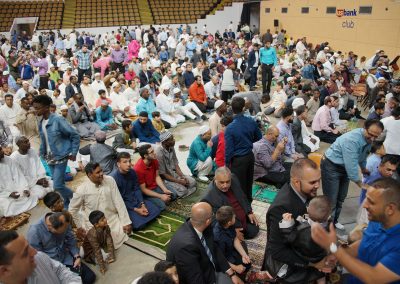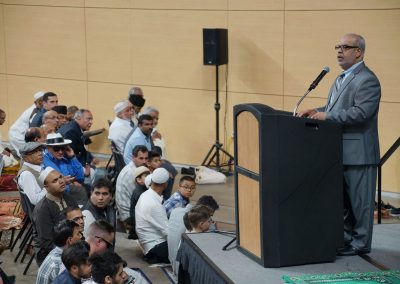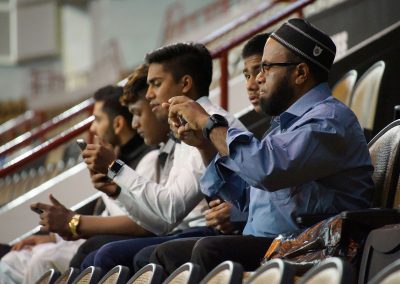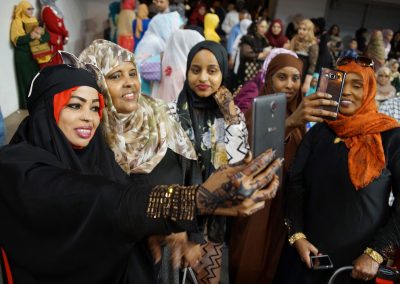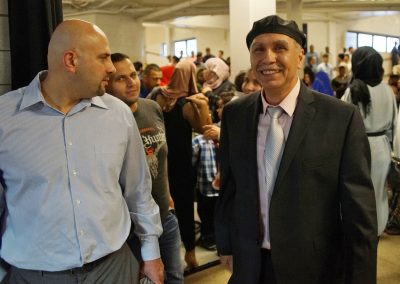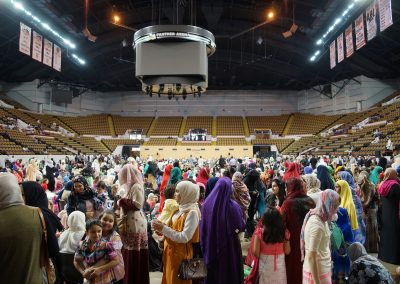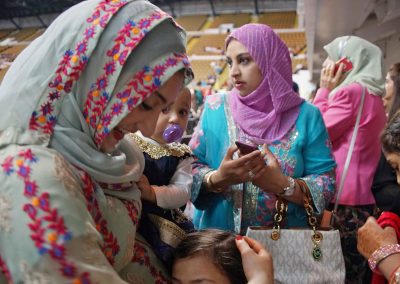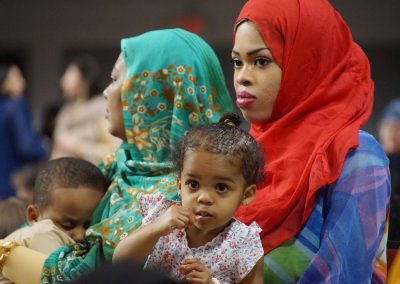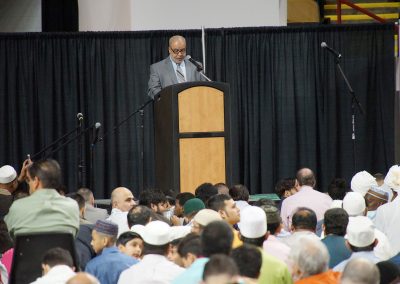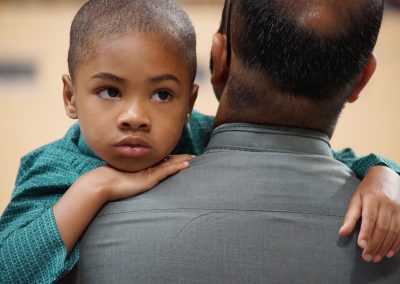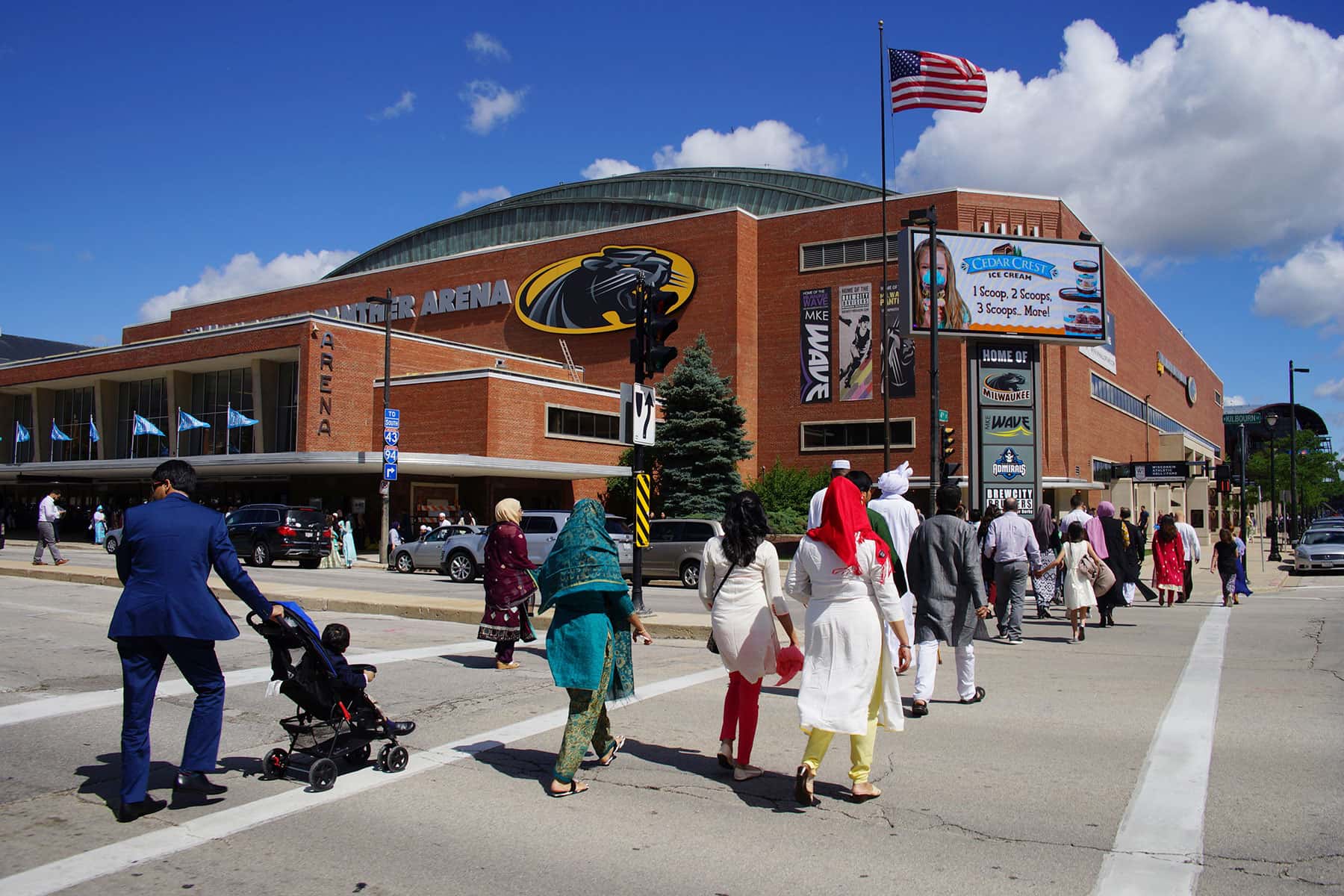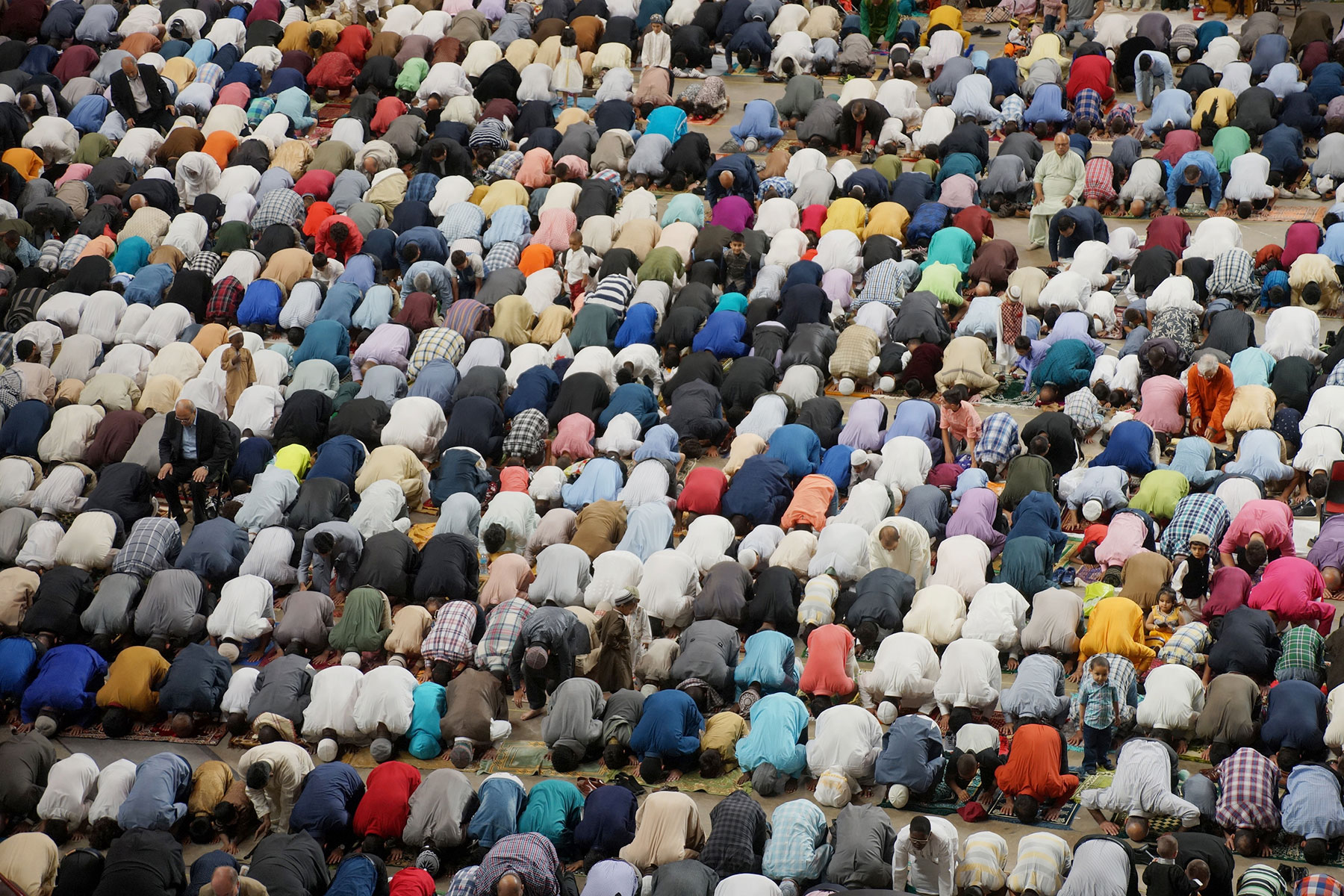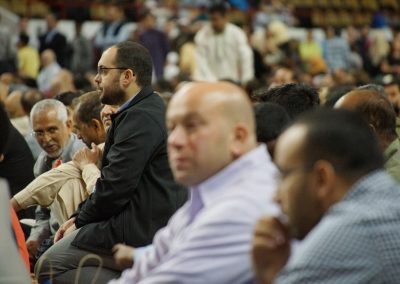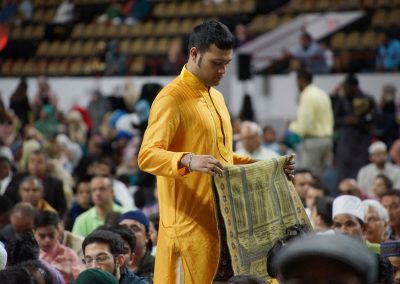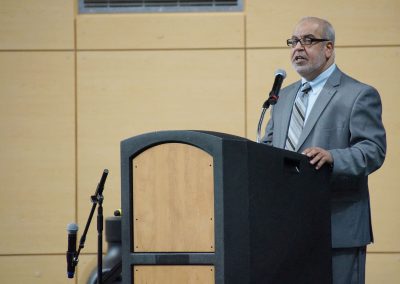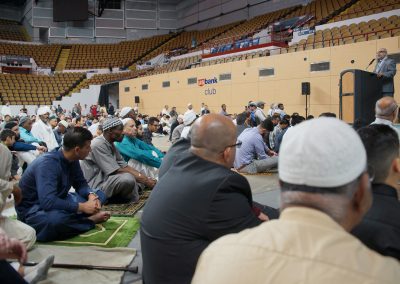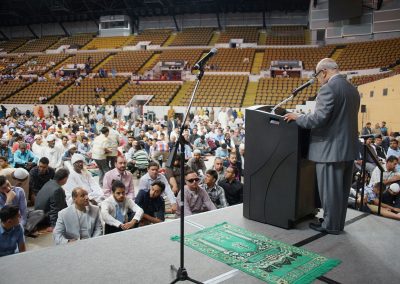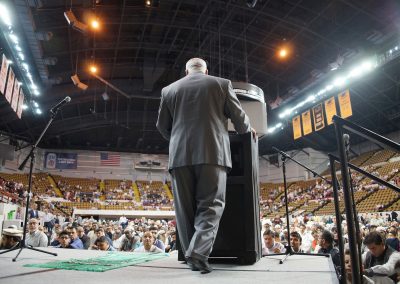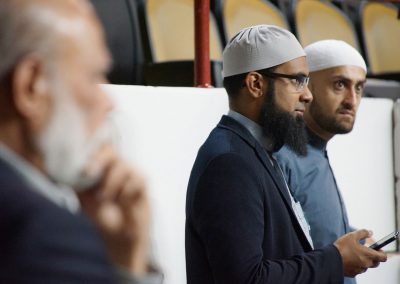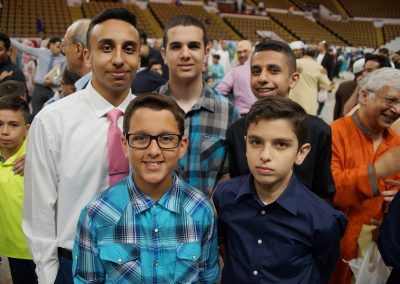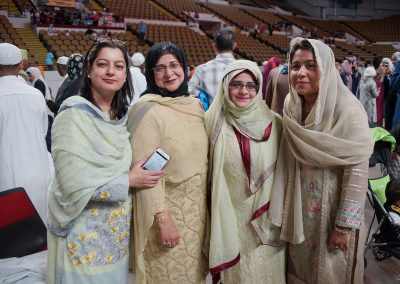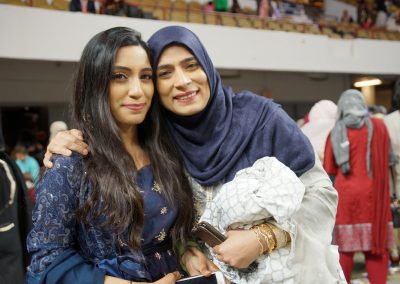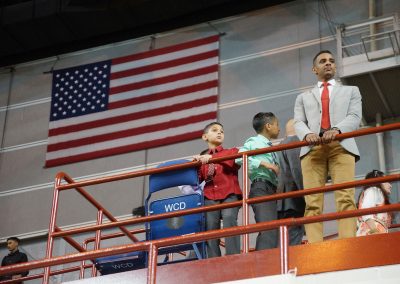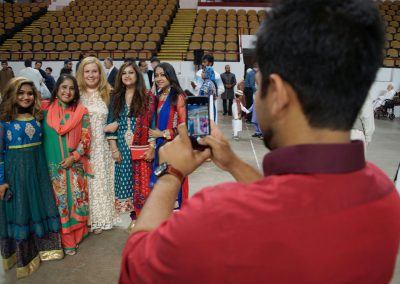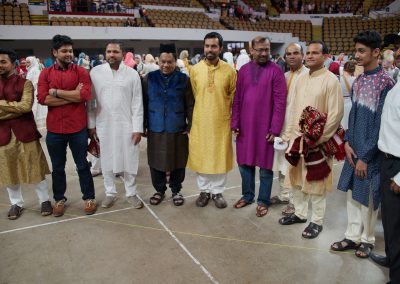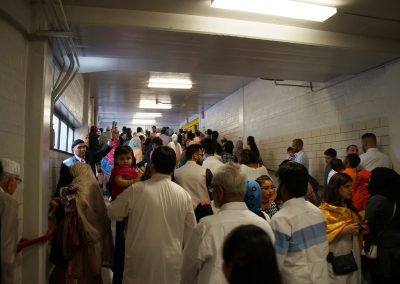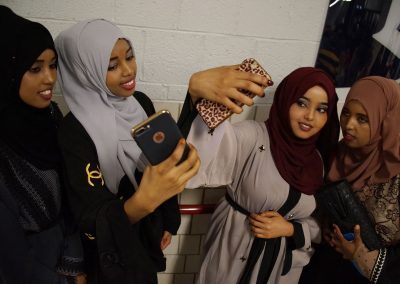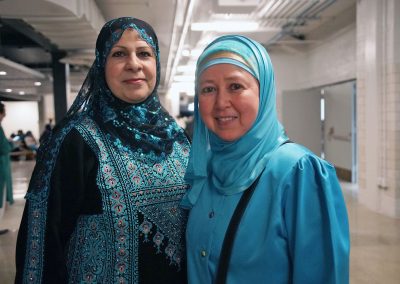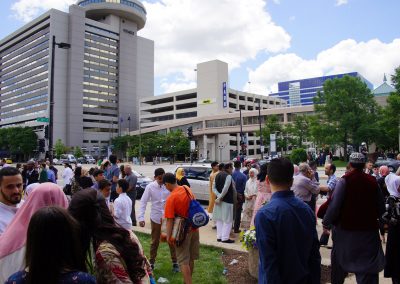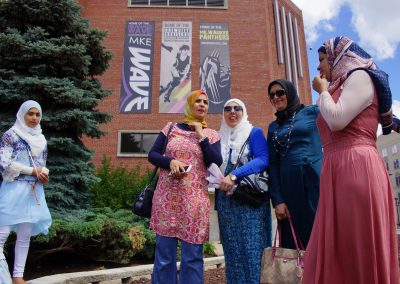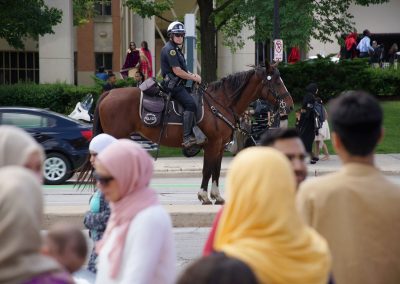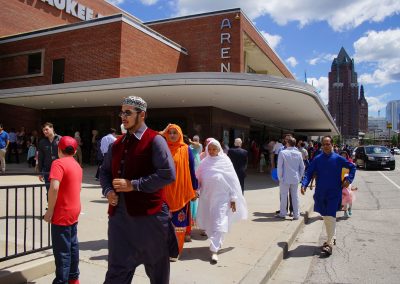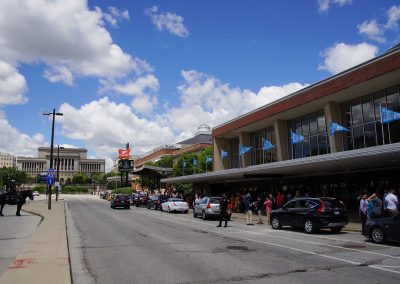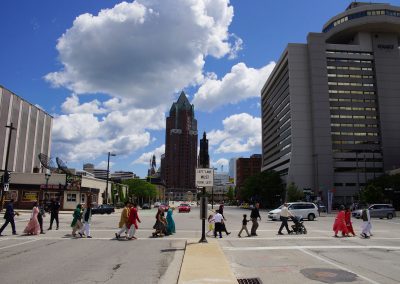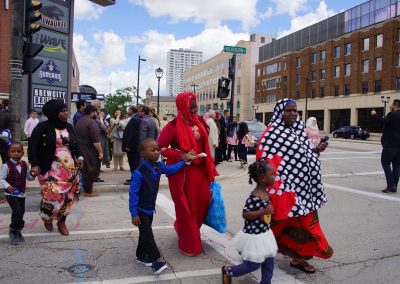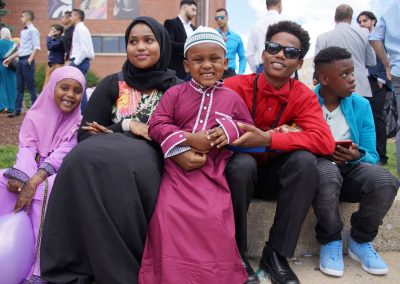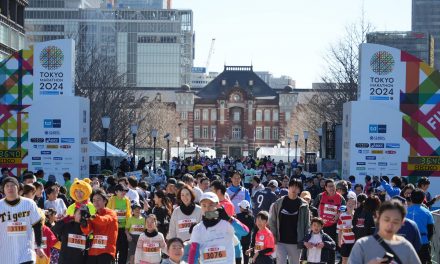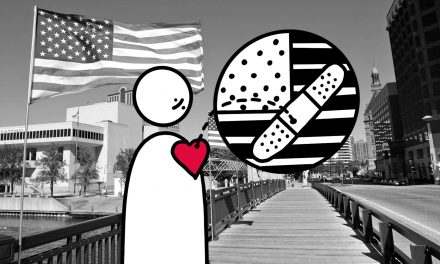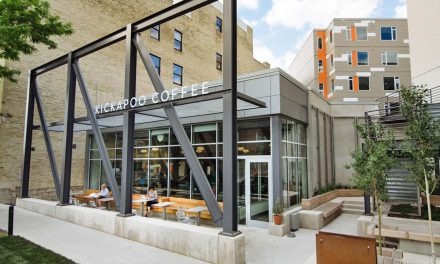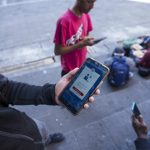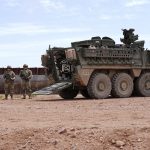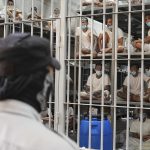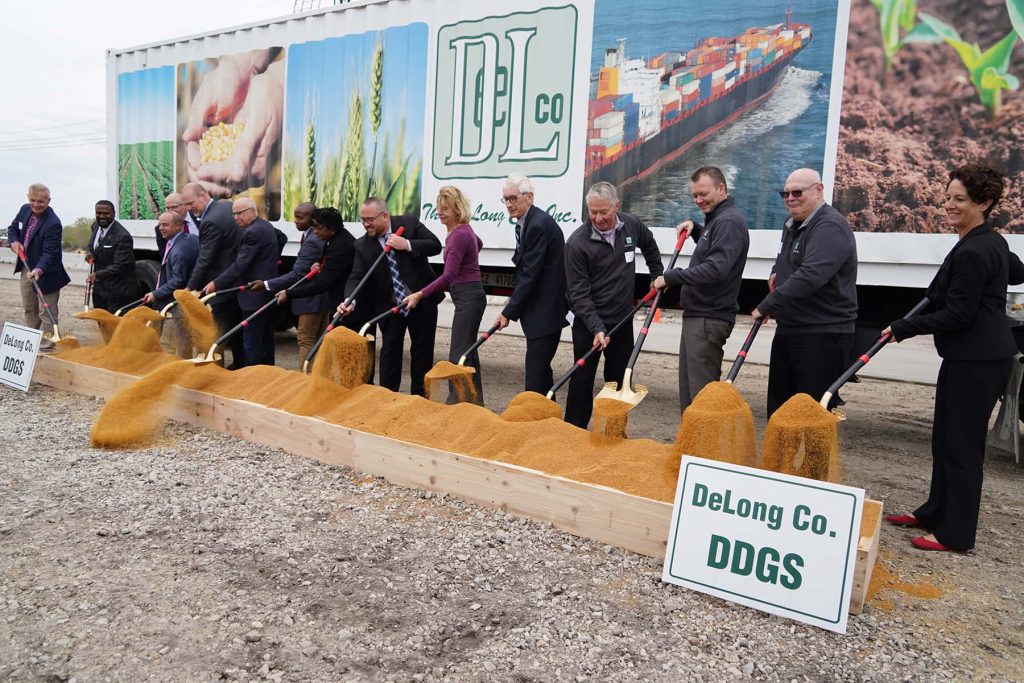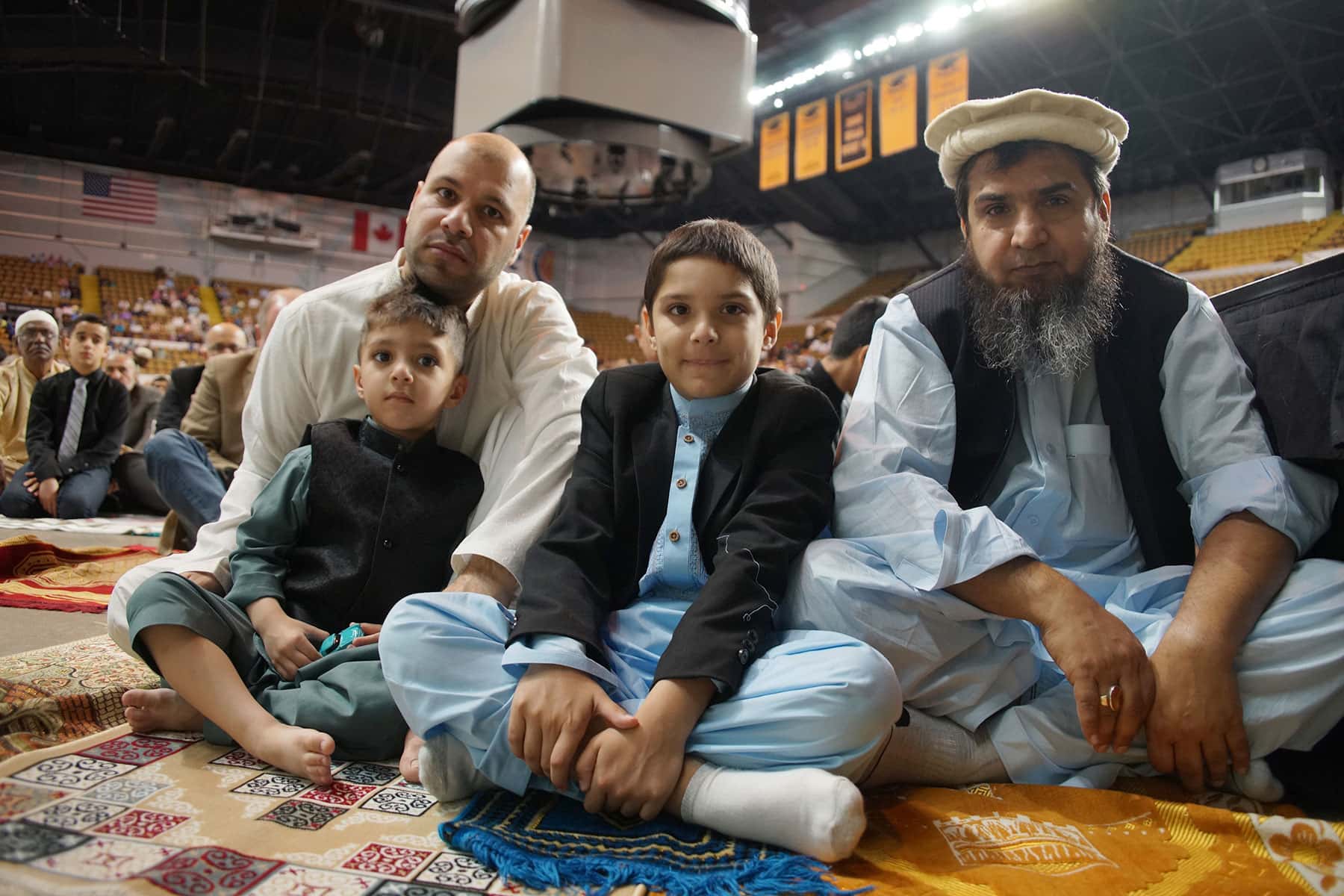
For 1.5 billion Muslims around the world, including the thousands in the Greater Milwaukee area, Saturday evening at sunset on June 24 marked the end of the month of Ramadan.
In Mosques, gatherings, and homes around the city, men, women, and children followed the tradition of Prophet Muhammad to “decorate your holidays with the glorification of God.” Voices in Milwaukee joined voices around the world in glorification:
“God is Greater (than anything), God is Greater, God is Greater, there is no God except the One God! God is Greater, God is Greater, God is Greater, all Praise and thanks are due to God.”
Ramadan is a month in which practicing Muslims fast from dawn until dusk every day. They abstain not only from food and drink, including water, but equally important they must refrain from negative speech, hurtful behavior, and vices. All of these requirements are simply tools to help attain the real goal of fasting, which is developing a greater God consciousness and becoming a better human being.
Ramadan is an intensely community oriented experience. Most of the evenings, Muslims break their fast with family, friends, and community members. Some gatherings are upwards of 400 people. There was a special emphasis this year to sponsor evening meals for single individuals that had no family, refugees and the volunteers that help them, interfaith friends and neighbors, the needy, and those with special needs.
Each of the nine Mosques in the Milwaukee area held two hours of nightly prayers that began at 10:30 pm. Most Mosques were filled to capacity. This is in spite of the fact that during the long summer days, it means people were getting home at 1:00 am, only to begin their fast again at 3:30 am. The Islamic Society of Milwaukee on 13th Street and Layton Avenue averaged 1,000 men, women, and children every night.
Ramadan is the month in which the Quran was revealed, so each night a portion of the Quran is melodically recited during the prayers. Chapter by chapter, huffaz (the guardians of the Quran), individuals that have taken it upon themselves to preserve the Quran by memorizing it in its entirety, lead the night prayers. A number of the huffaz in Milwaukee are teenagers and young adults that have dedicated much of their free time outside of school for this undertaking. On the night when the Quran is completed, the Mosques are filled to capacity. This year, the ISM prayer hall filled quickly and the overflow crowd, connected by video, packed the gymnasium and every large hall in the building, bringing in two thousand people who wanted to join the special prayer supplications following completion of the recitation of the entire Quran. As is the tradition, the huffaz did not stop after reading the last chapter, they always read a couple of pages from the beginning as well, encouraging the faithful that this book of guidance is not just for Ramadan.
The Eid al-Fitr Holiday, or the festival of breaking the fast which marks the end of Ramadan, fell on Sunday, June 25. More than 7,000 came out to the UW–Milwaukee Panther Arena downtown for the community-wide Eid prayer, while others chose to avoid the sea of people and attend the early morning Eid prayers at their area Mosques. Probably one of the most diverse gatherings to take place in Milwaukee, those who attended were quickly struck by the colorful clothing and festive atmosphere. White, black, and Latino Americans stood shoulder to shoulder in prayer with individuals dressed in ethnic clothing representing over 50 countries, including Nigeria, India, Macedonia, Egypt, Indonesia, Turkey, Palestine, Iraq, and many others. Many could not help noticing the awe struck Syrian refugees dressed in holiday clothes, using their cell phones to videotape the gathering as tears streamed down their faces.
Imam Ziad Hamdan, who delivered the sermon, articulated what everyone was feeling. The intense pride of being an American, because it is in America that one is able to witness such beautiful diversity, all in one location. He also spoke about the Quranic injunction God placed upon Muslims to work for the common good and to establish strong interfaith relations. With Christianity and Islam being the two largest faiths in the world, making up over half of humanity, if Muslims and Christians are not at peace, the world cannot be at peace. He reminded the crowd that Eid is the “Day of the Prize.” For Muslims that obeyed God’s call to fast the month, to spend it in prayer and giving charity, to reform themselves and forge a greater spiritual connection to God, they have attained their prize.
He also reminded everyone that the spiritual joy of Ramadan and Eid should not allow people to forget the pain in the world including the millions of refugees and victims of war and viоIеncе that live in fear every day. Nor should they forget that Muslims are being scapegoated, in spite of the fact that they are by far the greatest victims of tеrrоrism. He reminded everyone of the skyrocketing hаtе crіmеs against Muslims, but that was dwarfed by the incredible support Muslims have received from fellow Americans in all walks of life. Every Mosque and Muslim institution in the country received letters, cards, phone calls, visits, flowers, and acts of solidarity during these troubling times. He prayed for the brave and selfless heroes that are not Muslim, that protested in airports following the Muslim ban, made human chains around Mosques and even lost their lives trying to protect teenage Muslim girls from a Christian extremist in Portland.
He ended by making clear that the 1.5 billion Muslims will not allow tеrrоrists to define the beautiful faith of Islam. Nor will Muslims allow Islamophobes to dismantle American values of justice, civil rights, and equality. He urged American Muslims to stand proud, define who they are, and work to make America better.
Janan Najeeb
Lee Matz

